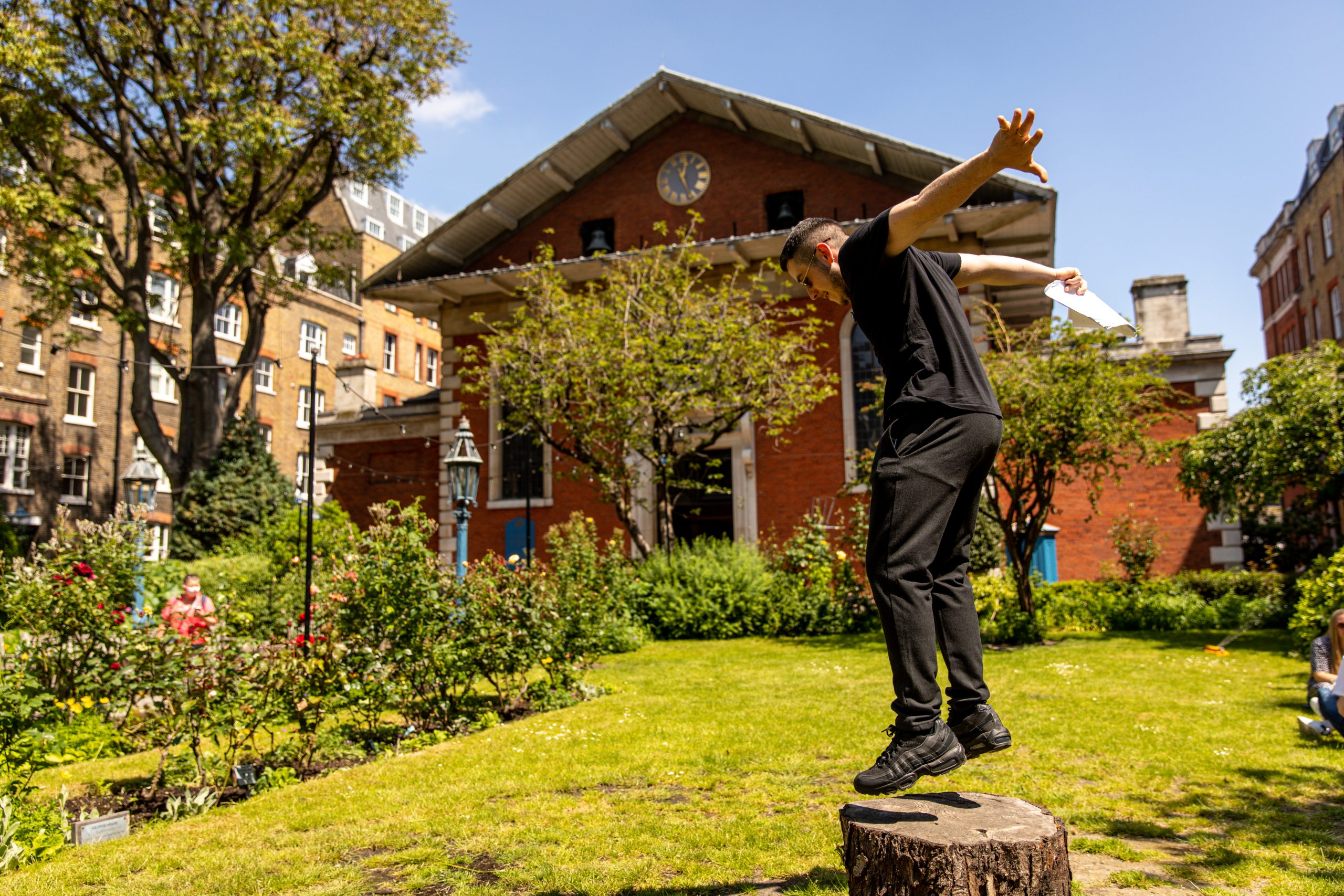Disabled-led theatre: Five things I learnt from the Creative Leadership Programme
11 Jun 2021

“Accessible” theatre is a term that’s thrown around a lot. But people often shy away from it because they don’t understand what it means or because it’s perceived as expensive.
I’ve recently completed the School for Social Entrepreneurs’ Creative Leadership programme, funded by Arts Council England’s Transforming Leadership programme. I’ve now founded a company and am producing a show called ‘Can You See Into a Black Hole?’ in Covent Garden, London which is running as a week-long accessible event.
Here are five things I learned from the programme that helped me do that:
1. There’s no such thing as “thinking” like a leader
We often talk about how a leader doesn’t look a certain way. I was diagnosed with the neurodiverse condition ADHD while on the SSE programme. Thanks to a recommendation from someone in my cohort I decided to do some coaching around ADHD.
Turns out my neurodiversity was a huge asset to me. I see now how I deal with pressurised situations more than a lot of people, and with some techniques I can also be much more productive.
2. People believe in the whole story, not just the ending
Usually, theatre defines its mission in terms of the shows it makes. This is theatre as a product.
But it can be more effective for your mission and vision to say what change you want to see in the world and see theatre as the vehicle. This is theatre as a process. It is much more successful because people want to believe in the whole story, not just the end product.
3. The social enterprise sector and the theatre sector should overlap more
Theatre brings with it masses of creativity and a deep knowledge of how to get an audience to believe in something. Social enterprises better understand the logistics of how to make that a reality.
The financial and legal structures in theatre don’t change very rapidly, because a lot of theatres are incredibly old, and it can be difficult to innovate business structures. More nimble structures seen in the social enterprise space, like CIOs, could help theatre innovate more quickly and be more ambitious.
Look at our show ‘Can You See Into a Black Hole?’. We’re running a week of relaxed outdoor performances in Covent Garden, and as far as I’m aware, we’re the first people to run a week-long relaxed show outdoors in Covent Garden.
4. Making theatre accessible is an opportunity, not a challenge
‘Can You See Into a Black Hole?’ is an outdoor show which means there are no stage lights and no dark spaces – it remains light throughout. These are close to the conditions of a relaxed performance, one where you change some sensory elements so people with autism, epilepsy and other conditions find it easier to watch.
Developing ‘Can You See Into a Black Hole?’ as an outdoor show means we can make it more accessible. We’ve also found that more general audiences prefer outdoor theatre opportunities due to the pandemic, so it makes it financially more viable.
We’ve just been named by The Guardian as one of the top 10 outdoor shows to see this summer in the whole of the UK. I think the success of that speaks for itself!
5. Ask for help
One of the biggest things I learned through SSE was to ask for help. I didn’t have the affluent upbringing that people in theatre are often known for. I also had a severe form of epilepsy which would sometimes stop my heart.
The world tried to raise me to be a follower so I found it difficult to ask for help on my leadership development. But getting an insight into the lives of more established leaders through SSE’s Creative Leadership programme made it easier for me to ask for support.
Now, some of the speakers are involved in the company I’ve founded, and one of them is on my advisory board.
*
“Leadership” was a complicated word for me as it has always felt very hierarchical. I make theatre which intentionally has as little hierarchy as possible. But the SSE programme opened my mind up to a kind of leadership that doesn’t reinforce the power structures I’m trying to change.
I am always hugely grateful for the way they’ve challenged me and pushed my practice, and I would really recommend other emerging arts leaders get involved.
‘Can You See Into a Black Hole?’ is running this summer 28th June – 3rd July as part of the Iris Theatre summer season in the grounds of The Actor’s Church. You can book your tickets here.
To keep up to date with Tom Ryall’s work you can follow them at @BoyAndPen or find BAP! At @BAP_Prods on Twitter.
